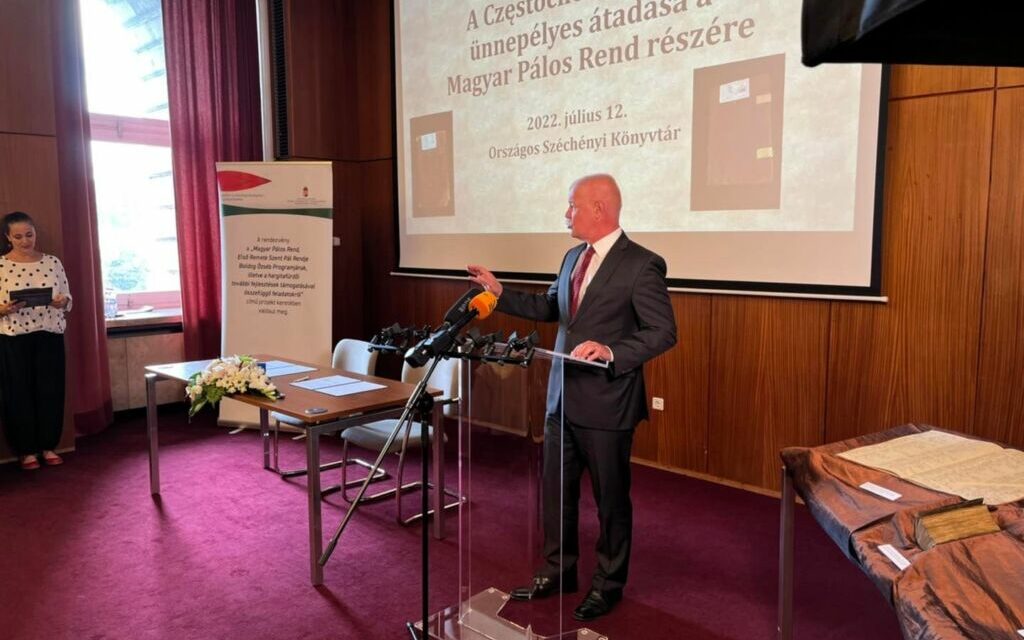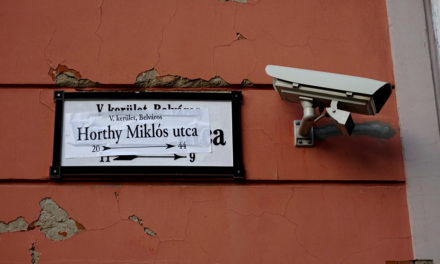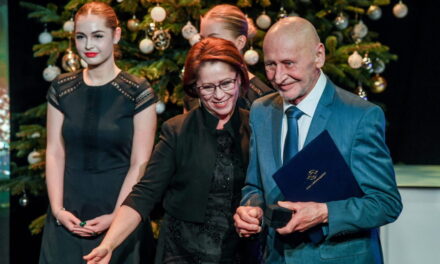After almost a year of restoration and digitization, the Latin liturgical codex, which also contains Hungarian language records, kept in Czestochowa, Poland, was returned to the Pauline Order in the National Széchényi Library (OSZK) on Tuesday.
In his celebratory speech, Minister of Culture and Innovation János Csák called the restoration of the codex a nationally important project, and expressed his joy that the liturgical document could be returned to a living, still functioning order of monks.
The minister recalled that the government launched the Blessed Özséb program in 2019, which specifically serves to preserve the values of the Pauline order and strengthen its organization. Emphasizing the importance of preserving the past, János Csák said that with the restoration of the code, the spiritual heritage that we have received and are receiving from our ancestors in the Carpathian Basin for more than thirty generations can be felt.
In his greeting, Dávid Rózsa, the general director of the OSZK, recalled that eight years have passed since the collaboration between the OSZK and the first and only Hungarian male monastic order started with an exhibition in Pécs. This already showed the codex that was kept at the headquarters of the general of the order, in Poland, and in which Péter Pál Domonkos discovered a prayer in Hungarian in 1961.
The codex, which is extremely important for both the history of Hungarian culture and order, was in extremely bad condition, the Hungarian Pauline Order asked the national library last year to restore the liturgical document, which also includes the Hungarian language, he added.
During the work that lasted for almost a year, the binding leather decorated with blind printing was conserved and its deficiencies replaced, the wooden boards that were heavily punctured were saved, and the buckles that had been lost over the years were reconstructed. The biggest task was to strengthen the weakened and in many cases damaged pages on the handwritten pages.
"In addition to saving the common Hungarian-Polish cultural treasure, this work also strengthens the friendship and cultural relations between the two nations," said the director general, adding that the codex has been digitized, so it will also be available on the library's online interface.
Dávid Rózsa also reported that by handing over the restored codex, the OSZK - where a significant number of Pauline codexes and modern Pauline manuscripts are kept - is renewing its cooperation with the Hungarian Pauline Order.
Provincial Chief Pálos Antal Puskás thanked the library staff for restoring the codex within the framework of the cooperation agreement concluded in 2014, which required enormous precision and expertise.
According to the OSZK, the genre of the codex is cantuále, i.e. liturgical songbook, with notation typical of Hungarian Paulists. The cantuále was made in a Pauline monastery in northern Hungary at the beginning of the 16th century, and during the century a prayer in Hungarian was also written into it. The document was presumably taken by a Hungarian Paulist to Poland and the codex remained in Czestochowa for unknown reasons.
Source: vasarnap.hu
Featured image: OSZK












